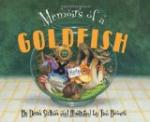I frankly confess that my own ignorance is abysmal. In the last twenty-eight years what information I have acquired has been picked up principally from newspapers and magazines; yet my library table is littered with books on modern art and philosophy, and with essays on literary and historical subjects. I do not read them. They are my intellectual window dressings. I talk about them with others who, I suspect, have not read them either; and we confine ourselves to generalities, with a careful qualification of all expressed opinions, no matter how vague and elusive. For example—a safe conversational opening:
“Of course there is a great deal to be said in favor of Bergson’s general point of view, but to me his reasoning is inconclusive. Don’t you feel the same way—somehow?”
You can try this on almost anybody. It will work in ninety-nine cases out of a hundred; for, of course, there is a great deal to be said in favor of the views of anybody who is not an absolute fool, and most reasoning is open to attack at least for being inconclusive. It is also inevitable that your cultured friend—or acquaintance—should feel the same way—somehow. Most people do—in a way.
The real truth of the matter is, all I know about Bergson is that he is a Frenchman—is he actually by birth a Frenchman or a Belgian?—who as a philosopher has a great reputation on the Continent, and who recently visited America to deliver some lectures. I have not the faintest idea what his theories are, and I should not if I heard him explain them. Moreover, I cannot discuss philosophy or metaphysics intelligently, because I have not to-day the rudimentary knowledge necessary to understand what it is all about.
It is the same with art. On the one or two isolated varnishing days when we go to a gallery we criticize the pictures quite fiercely. “We know what we like.” Yes, perhaps we do. I am not sure even of that. But in eighty-five cases out of a hundred none of us have any knowledge of the history of painting or any intelligent idea of why Velasquez is regarded as a master; yet we acquire a glib familiarity with the names of half a dozen cubists or futurists, and bandy them about much as my office boy does the names of his favorite pugilists or baseball players.
It is even worse with history and biography. We cannot afford or have not the decency to admit that we are uninformed. We speak casually of, say, Henry of Navarre, or Beatrice D’Este, or Charles the Fifth. I select my names intentionally from among the most celebrated in history; yet how many of us know within two hundred years of when any one of them lived—or much about them? How much definite historical information have we, even about matters of genuine importance?
* * * * *




